Publications
Articles, publications, books, tools and multimedia features from the U.S. Institute of Peace provide the latest news, analysis, research findings, practitioner guides and reports, all related to the conflict zones and issues that are at the center of the Institute’s work to prevent and reduce violent conflict.

Frank Aum on the Year in North Korea Diplomacy
With North Korea’s self-imposed, year-end deadline for a nuclear deal looming, USIP’s Frank Aum says that while complete denuclearization isn’t likely in the near term, “all of the components of a good-enough interim nuclear deal are there, but both sides need to be flexible on some of the harder issues.”
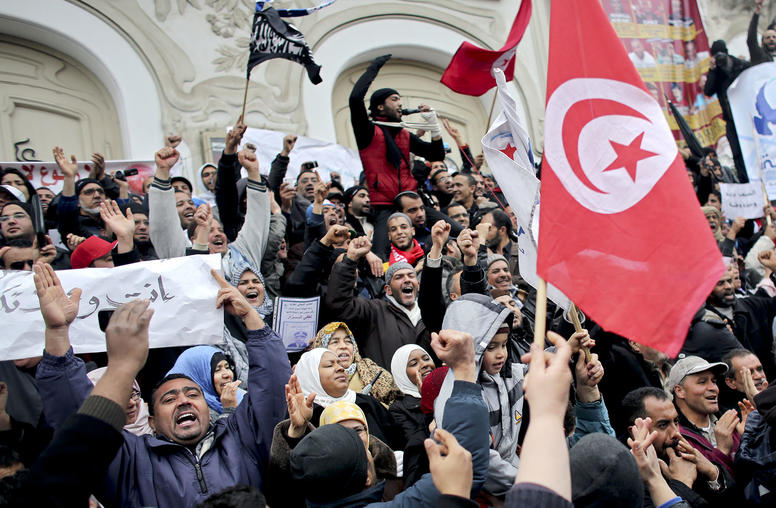
Tunisia’s transition has unfinished business. Can Ennahda lead the way?
Fresh off a busy election season, Prime Minister-designate Habib Jemli is in the process of forming Tunisia’s next government. That government will have the daunting task of addressing Tunisians’ deep disenchantment with the political class and its failures to live up to the promise of the 2010-2011 uprising that led to the overthrow of longtime dictator Zine El Abidine Ben Ali. “The big problems confronting Tunisians have not been given enough importance” from the country’s political parties, said Abdelfattah Mourou, the first presidential candidate of the Ennahda party, during an interview at USIP.
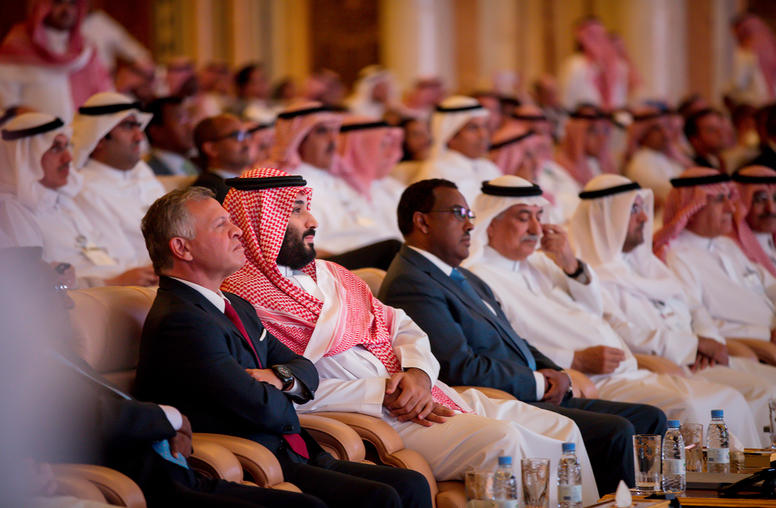
Israeli-Palestinian Conflict: It’s Time for a Sequel to the Arab Peace Initiative
The Israeli-Palestinian conflict has fallen down the list of political priorities in recent years as regional and global powers have been preoccupied with more pressing issues—including tensions with Iran; wars in Syria, Yemen and Libya; unrest in Lebanon, Iraq and Algeria; the rise of intestate competition, including with Russia and China, in the region; and a host of internal issues affecting the countries of the region. However, recent regional developments may present opportunities to reaffirm the tenets that would someday lead to a comprehensive peace.

Steve Hege on Colombia’s Protests and Stalled Peace
In Colombia, protesters are demanding that President Ivan Duque address concerns over economic inequality, corruption, the Venezuela crisis and implementation of the 2016 FARC peace accord in what USIP’s Steve Hege calls the country’s “largest mass mobilization in four decades.”
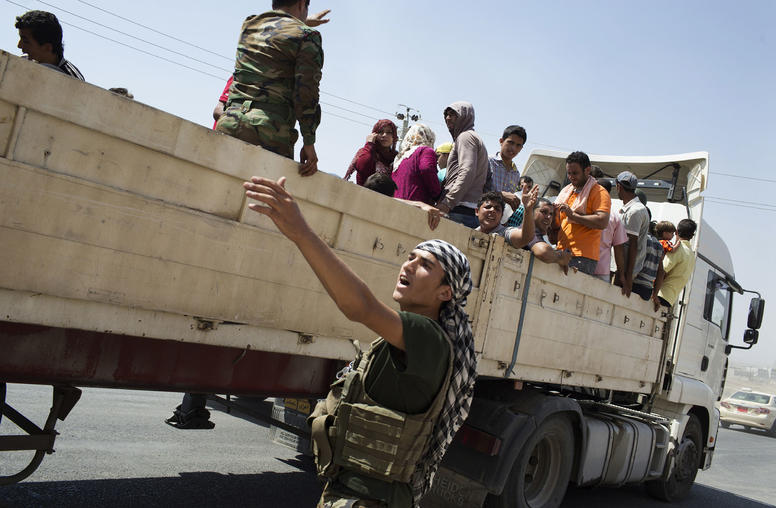
Escape from ISIS: One Family’s Story
The horrific story of ISIS’s bid to wipe out Iraq’s Yazidi minority is fairly well known in the United States. At least in broad terms, Americans who pay attention to such things understand that the terrorist group’s fanatical gunmen rolled in on a defenseless people, butchered men and boys by the thousands and hauled away young women into sexual slavery in a genocidal plan.

Iraq’s protesters just ousted a prime minister. Now what?
Iraq faces a new political crisis and the risk of more violence after its prime minister, Adel Abdul Mahdi, resigned under pressure from two months of mass demonstrations by youthful protesters. More than 400 people have been reported killed amid authorities’ forceful attempts to disperse the youthful protesters, who say a corrupt elite is failing to provide basic government services and share the country’s wealth with citizens. But Abdul Mahdi is stepping down only after Iraq’s most prominent Shia cleric withdrew his support. USIP’s Sarhang Hamasaeed and Elie Abouaoun discussed where the crisis could lead.

Nancy Lindborg on the Role of People Power in Global Security
Returning from the Halifax International Security Forum, USIP President and CEO Nancy Lindborg explains why the growing number of “people power” movements around the world have left her optimistic, saying “the notion of what constitutes national security continues to evolve…security includes governments that are responsive to the needs of their people.”
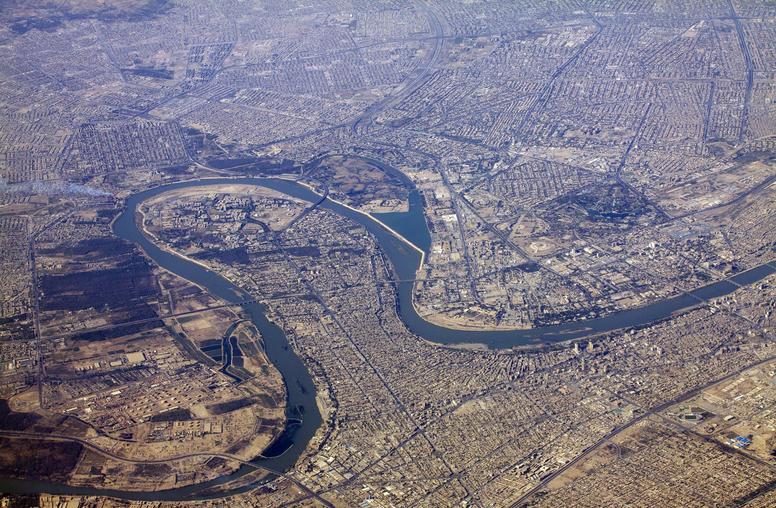
Engaging the Post-ISIS Iraqi Religious Landscape for Peace and Reconciliation
Religious actors in Iraq wield considerable influence, and Iraqis perceive them as playing an important role in moving the country toward peace. This report analyzes the influence of Iraq’s religious actors—who has it, why they have it, and how they exercise it—to illuminate their crucial role in supporting peace and reconciliation efforts and to help policymakers and practitioners understand how to engage them in efforts to advance peace.

Engaging the Post-ISIS Iraqi Religious Landscape for Peace and Reconciliation (Arabic)
Religious actors in Iraq wield considerable influence, and Iraqis perceive them as playing an important role in moving the country toward peace. This report analyzes the influence of Iraq’s religious actors—who has it, why they have it, and how they exercise it—to illuminate their crucial role in supporting peace and reconciliation efforts and to help policymakers and practitioners understand how to engage them in efforts to advance peace.
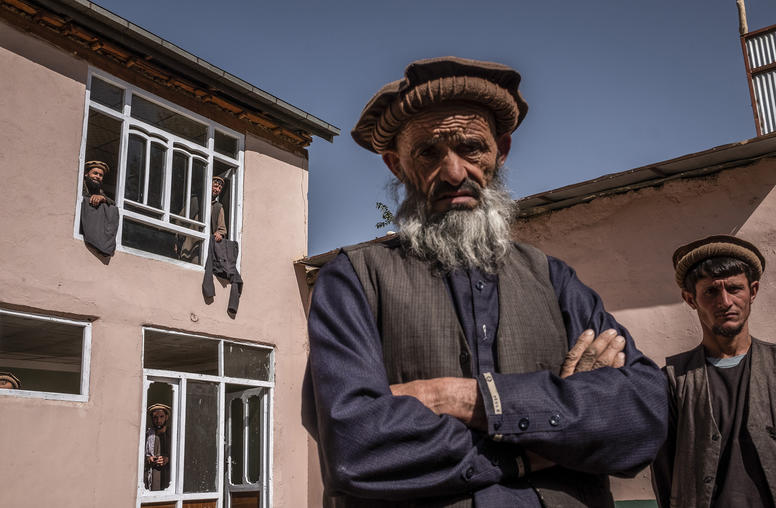
Will a Prisoner Swap with the Taliban Push the Afghan Peace Process Forward?
It’s been over two months since President Trump announced a halt to U.S.-Taliban peace talks. In a move that could revive the moribund peace process, the Afghan government and Taliban completed a prisoner exchange that had been announced last week but then delayed. An American and Australian professor held by the Taliban were freed in return for three senior Taliban figures. Meanwhile, Afghanistan’s September 28 presidential election remains undecided, further complicating peace efforts. USIP’s Scott Worden looks at what impact the prisoner exchange could have on the peace process, how regional actors have sought to fill the vacuum in the absence of the U.S.-led talks and the connection between negotiations and the election.